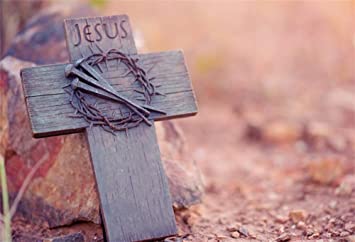Easter
I remember growing up I used to celebrate Easter every year. On Friday, we used to have hot cross buns and tea without milk at home. The significance of these items was as follows: Each bun was decorated with a cross made from flour paste, which represented the cross on which Jesus was crucified. The spices that are used in these buns represented the spices used to embalm Christ after His death. The tea without milk was supposed to represent His blood. Then on Sunday we had Easter eggs. What did Easter eggs have to do with Easter? Eggs represent new life or rebirth. Easter eggs are said to represent Jesus’ emergence from the tomb and resurrection. As a child in a Hindu family, this was the way I remembered Easter.
But it was not until I began to search for God and learn His ways according to the Bible, was I able to see the truth behind the crucifixion. What I used to do was simply paganistic in nature and I shudder to imagine doing that again.
The death, burial and resurrection of Jesus Christ is the heart of the Christian faith and message. It is Christ’s victory over sin and death but is never intended to be celebrated with hot cross buns and tea without milk.
This weekend will be hailed as “Easter” and for most people in the Christian world, it will be remembered as the weekend in which Christ was crucified. Some churches will gather together in celebration of this event, and it may be the only other time of the year when they partake of the Holy Communion (Eucharist or Lord’s Supper), beside Christmas.
How did Easter become so popularized? It was erroneously translated by the King James Bible translators. They translated the Greek word “pascha” in Acts 12:4 to “Easter” instead of Passover. Through universal colonial influences by both Catholics and Protestants, it became a glorified once-a-year celebration.
However, the ordinances of Scripture do not support a once-a-year observation of the Lord’s Supper. In fact, the Apostle Paul, directed by the Holy Spirit, clearly set the example for us regarding frequency. He altered his travel plans so that he could meet with the disciples, who “came together to break bread” on the first day of the week (Acts 20:7). This was a regular practice and may it always be ours until our last breath.

